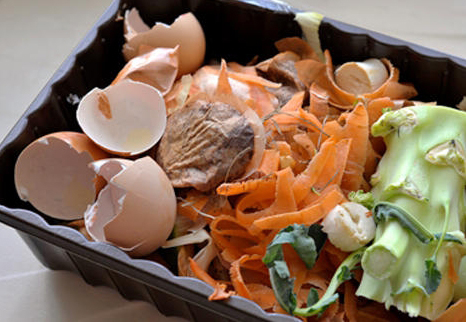
Are fertilizer and compost the same?
2023-11-09Organic fertilizer Compost Fertilizer making machine
Fertilizer and compost are often considered the same substance in the farming industry. Because they can all provide nutrients to plants and promote their growth and development, however, in actual applications, fertilizer and compost are used in different ways and at different times, and cannot be broadly summarized into the same category in terminology.
Introduction: The Difference Between Fertilizer and Compost
Fertilizer is a processed substance. It can be chemical syntheses, such as nitrogen, phosphorus, potassium, and other trace elements. It can also be organic matter extracted from the natural environment. It comes in various forms such as liquid, powder, and granular forms. During the planting process, different fertilization methods can be selected according to needs. Fertilizer has a high nutrient content and can effectively meet the nutrient needs of plants. Commonly used by horticulturists to increase plant yields.
Composting uses organic matter such as food waste, wood chips, leaves, and livestock manure to ferment and decompose under the action of microorganisms to produce organic fertilizer. Because of its low nutrient content, it is often used to improve the soil's environmental structure and improve soil water retention capacity and fertility.
Both fertilizers and compost play an important role in gardening. Fertilizer includes compost, and the two complement each other. For different plant nutrient requirements.![]()
Advantages and Disadvantages of Composting
Due to space limitations, this chapter first explains the pros and cons of composting:
Advantages of composting
· Effectively reduce the amount of garbage and waste, which is beneficial to environmental health.
· Use waste to produce organic fertilizer for resource reuse.
· Effectively improve soil structure, provide nutrients for plants, promote growth, and increase yield.
· Contains 100% natural organic substances, reducing the use of chemical pesticides and fertilizers.
· It is a relatively cheap way to improve soil.
Disadvantages of composting:
· The fertilizer effect is slow and takes time.
· Requires regular management and continuous attention.
· The quality and organic matter content of compost depends on biological waste.
· May attract insects.
· Neighbors may not like the smell of compost.
How compost is produced
When you want to produce compost, you need to first collect various organic wastes such as fallen leaves, kitchen waste, sludge, weeds, animal manure, etc. Then use crushers and mixers to crush and decompose the materials. Use composting equipment to turn the materials and fully expose them to air for aerobic fermentation. If you need a more efficient and smart fermentation method, I would recommend using a fermentation tank. It uses high temperatures to rapidly decompose and can complete harmless treatment in 10 hours.

When to use compost and fertilizers
Generally speaking, the best time to compost is before the growing season. For example, if you apply fertilizer in autumn, the fertilizer effect will begin to be released in the following spring to ensure the plant's annual yield.
The timing of fertilizer application depends on the growth stage of the plant. For example, in autumn, spring, and the growing season, fertilizers should be used regularly according to the growth needs of plants to effectively and quickly promote plant growth.
Conclusion
Compost effectively improves the soil environment, and fertilizer promotes plant production. Mixing fertilizers into compost can supplement the nutrients missing in the compost and improve fertilizer efficiency. If you need it, our equipment can automatically mix and proportion the ingredients to obtain high-quality mixed fertilizer. Intelligent technology will improve work efficiency, make it more precise, and ensure uniform specifications and quality.
